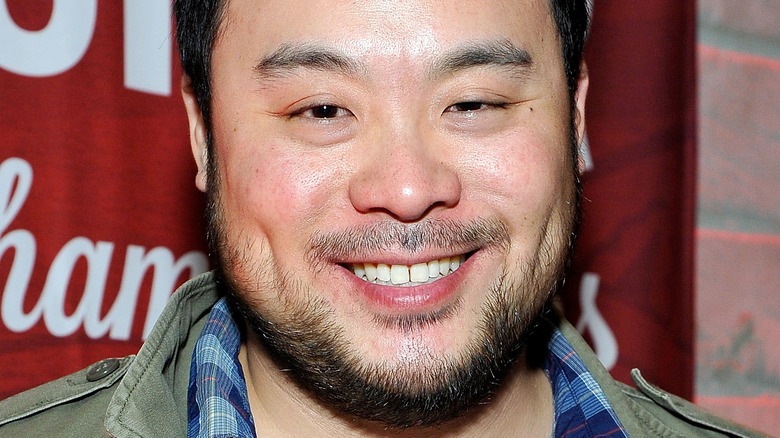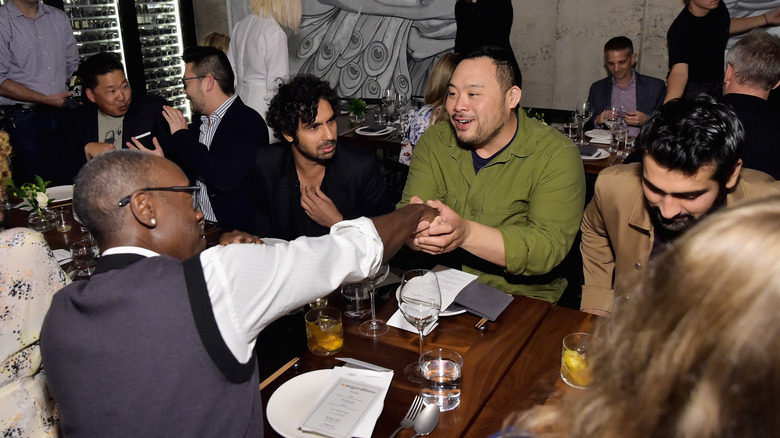The David Chang Controversy The Next Thing You Eat Ignores
David Chang's new Hulu series "The Next Thing You Eat" recently premiered and not everyone is a fan. As it's early days still, the show has yet to be subjected to many pieces of scrutiny. Most, like this article written for Variety, focus on explaining what it is that Chang explores within the show. However, a writer for Arizona Republic, Felicia Campbell, said she was not impressed by the program stating the entire issue in the headline: "David Chang's new Hulu show isn't about the future of food. It's about him. It's a problem."
The rest of the piece focuses on how none of the experts stand out as prominently as the celebrity restaurateur. It ends with questioning how Chang can place himself both as a savior and the little guy, while never addressing the toxic environment he created in the workplace. "Chang trying to speak for food service workers as one of the underdogs comes off as flippant and absurd to the point of being offensive," Campbell notes. However, she ends her review not by wanting this perspective removed entirely, but reduced so that the show could shine.
How David Chang has sold his redemption
With abusive chefs and their toxic environments becoming ever more anathema, it's surprising that David Chang has managed to skate by without issue. Part of this is how the famous cook manages to frame his past as an abstraction from which he's distanced himself. "And the hardest part, though, about that is I have been my father to actually some people in my life," Chang reflected to NPR in September 2020. "Some of them have been my own employees when I was younger. And when you think about it, I grew up in a household where I was yelled at and basically cowered in fear."
For Hannah Selinger, Chang's onetime corporate beverage director, this abstraction elides what she and other workers actually experienced. So, when Chang released his memoir "Eat a Peach," she examined in Eater how he manages to both admit to being bad and also not address the fact. He often admits to issues in generalities that forget the specifics. However, Selinger notes, he also does not make the attempt to really learn or consider the impact of his anger on others. The ultimate feelings of Selinger's piece, however, is not so much condemnation than a hope that the celebrity chef has indeed matured beyond her memories of him and a conviction that he should make actual redresses for the trauma he left behind.

